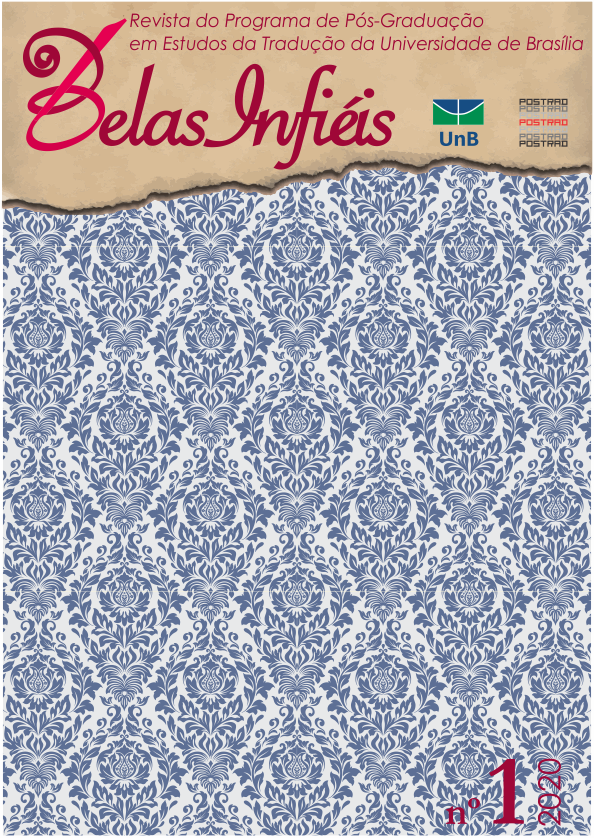Berman’s trials of the foreign and postcolonial translations
DOI:
https://doi.org/10.26512/belasinfieis.v9.n1.2020.28143Keywords:
Antoine Berman. Postcolonialism. Postmodern theories. Vernacularization. Ethics of translation.Abstract
Antoine Berman’s concept of “the trial of the foreign” has proven particularly useful inelucidating and accounting for postcolonial translation practice. African European-language writing is characterized by the practice of vernacularization and literary diglossia as a writing strategy in what is generally an intercultural communication context. This raises questions of identity and ideology with respect to the use of colonial languages, as well as issues of power relations between the center and the periphery. The strategy of deterritorializing and reterritorializing often used by postcolonial writers as an attempt to reappropriate the colonial language and thus claim their own space is an example of what Berman refers to as “writing as translation”. This style of writing, heavily grounded in ideological as well as sociocultural considerations, raises some serious questions about translation choices which can only be addressed through a sound and comprehensive ethics of translation. Postmodern theories can help us define an ethics framework for translation which will allow us to move away from the binary opposition, or the dichotomy, of foreignist versus domesticating translation that has been at the basis of much theorizing in translation studies.
References
BERMAN, Antoine. Les tours de Babel: essais sur la traduction. Mauvezin: Trans-europ repress, 1985.
BERMAN, Antoine. Pour une critique des traductions: John Donne. Paris: Gallimard, 1995.
BHABHA, Homi K. The Location of Culture. London: Routledge, 1994.
DERRIDA, Jacques. L'écriture et la différence. Paris: Seuil, 1967.
DERRIDA, Jacques. Positions. Paris: Minuit, 1972.
LECERCLE, Jean-Jacques. The Violence of Language. London: Routledge, 1990.
LEWIS, Philip E. The Measure of Translation Effects. In: VENUTI, Lawrence. The Translation Studies Reader. London: Routledge, 1985. p. 264-283.
MEHREZ, Samia. Translation and the Postcolonial Expérience. In: VENUTI, Lawrence. Rethinking Translation. London: Routledge, 1992. p. 120-138.
OKARA, Gabriel. The Voice. London: Heinemann, 1964.
OKARA, Gabriel. La voix. Tradução: J. Sevry. Paris: Hatier, 1985.
TINE, Alioune. La diglossie linguistique et la diglossie littéraire et leurs effets dans la pratique esthétique d’Ousmane Sembène. In: TINE, Alioune. Littérature et cinéma em Afrique francofone: Ousmane Sembène et Assia Djebar. Paris: L’Harmattan, 1995. p. 82-97.
VENUTI, Lawrence. The Translator’s Invisibility: A History of Translation. London: Routledge, 1995.
VENUTI, Lawrence. The Scandals of Translation: Towards an Ethics of Difference. London: Routledge, 1998.
VENUTI, Lawrence. The Translation Studies Reader. London: Routledge, 2000.
Downloads
Published
Issue
Section
License
Given the public access to this journal, the texts are free to use but requires the recognition of the original authorship and initial publication in this journal to be properly stated.
 The journal allows the use of works published for non-commercial purposes, including the right to submit the work to publicly accessible databases. Published contributions are the sole and exclusive responsibility of the author(s).Â



















